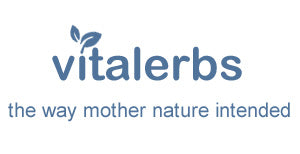Tansy, a member of the daisy family, is a perennial herb with an extensive history in traditional medicine dating back to ancient Greece and Rome, renowned for its distinctive yellow button-like flower heads emitting a robust, aromatic fragrance. Also referred to as Golden Buttons and Cow Bitter, tansy was initially cultivated by ancient Greeks and later found its place in Medieval monastery gardens.
The adaptability of Tansy Herb Cut makes it an ideal inclusion in your herbal arsenal. Whether crafting teas, tinctures, or herbal remedies, or incorporating it into potpourri, sachets, or culinary creations, its versatility knows no bounds.
In essence, Tansy Herb Cut stands as a versatile and fragrant herbal option rooted in centuries of traditional medicinal use. Whether serving as an insect repellent, a natural remedy, or a culinary enhancer, our Tansy Herb Cut elevates your herbal repertoire. Experience its benefits firsthand and introduce it into your daily regimen today!
UPC: 084783019008
Origin(s): Croatia.
Latin Name(s): Tanacetum Vulgare.
Also known as: Buttons, Bitter Buttons, Golden Buttons, Cow Bitter, Hindheal, Parsley Fern.
Plant Part(s) Used: Flowering Tops.
Appearance: Yellow, pale green & tan.
Aroma: slightly pine-like, camphorous aroma.
Taste: Bitter.
GMO Status: Non-GMO.
Allergen: None.
Additives: Free of any additives or preservatives.
Applications / Preparations: Can be used in teas, tinctures, cooking, baking, natural insect repellent, infused as an herbal extract or can also be added to potpourri. For cosmetic use make infusions, herbal oils & salves for the skin.
Storage: Store in a sealed container in a cool, dry place.
Shelf Life: It is very difficult to pin down an exact expiration date for most single herbs as they do not really expire, they lose potency or strength over time but will still have value. Unlike synthetic material or drugs, herbs can contain many constituents that contribute to their medicinal effects. Even if when we know what the active constituents are, there are often many of them in a single herb, each with different rates of degradation. Some herbs lose their effect more easily. Other herbs that possess more stable compounds such as alkaloids or steroids will last much longer.
A huge part of the degradation rate of herbs depends also on the storage conditions of the herb, & even on the quality of the herb before storage – how it was grown, harvested, dried & processed. If the product is left in hot places or open to sunlight then it will degrade much quicker than if it was stored in cool, dry place & sealed tightly.
A good rule of thumb is that herbs should be stored no longer than 2-3 years but many herbs will have great strength much longer than that. To determine if a an herb is still good you can check the appearance & aroma. Herbs that are no longer acceptable will have lost much of its vibrant color & will instead appear dull & faded. The bigger key though is to smell the raw materials to see if the potent aroma is still present.
Warning: Not to be used during pregnancy. Not to be used while nursing. Consult with your health care professional before taking internally.

